Art World
Banksy’s Gorilla Mural Removed From London Zoo
The removal or destruction of Banksy's works has been a frequent occurrence throughout the artist's decades-long career.
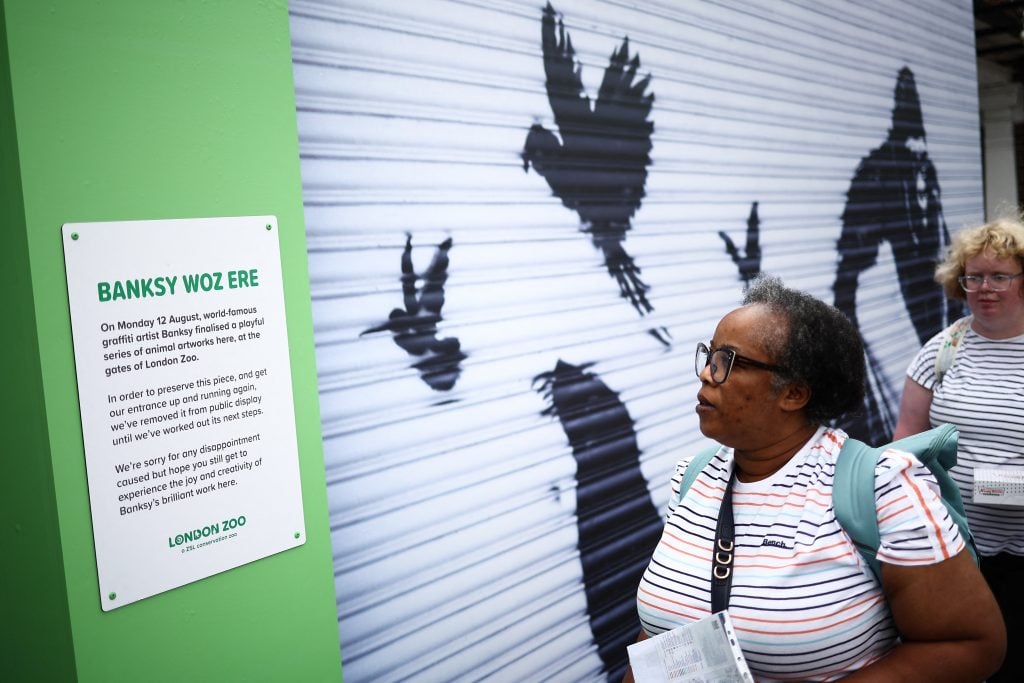
Banksy’s guerrilla gorilla, which appeared at the London Zoo in Regent’s Park last week, has been removed for preservation. The vignette, painted in the British street artist’s signature black and white spray paint, was stenciled on a steel roll-down gate at the zoo’s entrance and depicted an ape furtively lifting the shutter as if it were a curtain, releasing other animals out into the park.
The gorilla was the ninth and final work in a series of animals that crept up daily around the U.K. capital starting August 4. Now, a reproduction of the work stands in its place, with a sign stating “Banksy woz ere.”
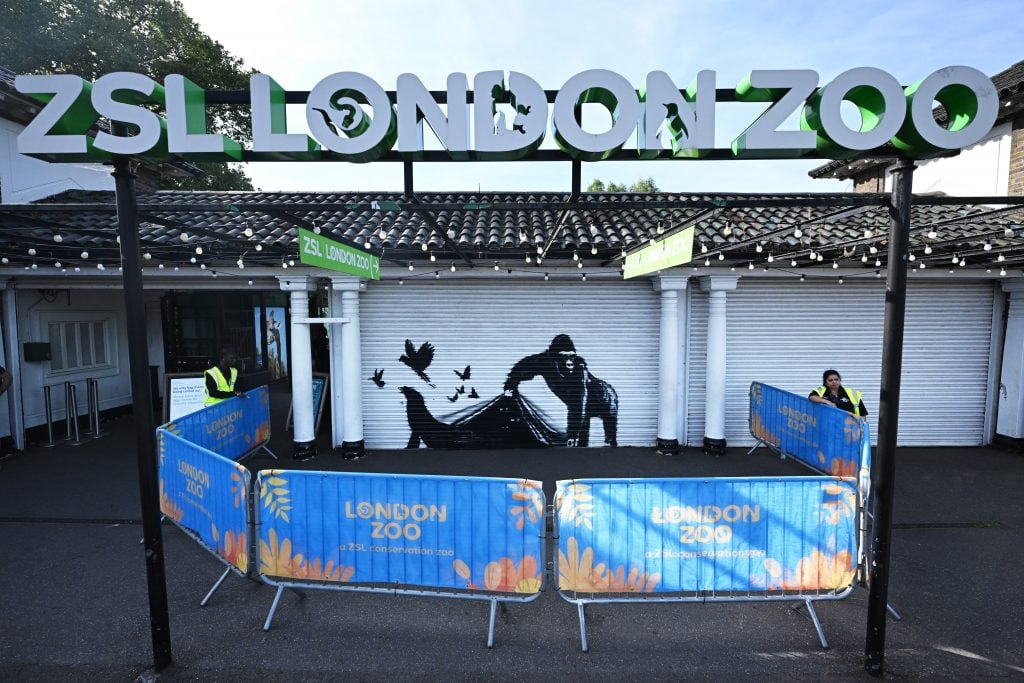
A mural of a gorilla freeing animals adorns a wall at London Zoo on August 13, 2024 in London, England. Photo: Leon Neal/Getty Images.
The zoo said it removed the anonymous artist’s mural on its gate for safekeeping—and so the venue could resume full operation of its gate after hoards of visitors came to see it over five days last week. The entrance had remained closed since the work appeared on Monday, August 12. Until its removal, the gate had remained closed and zoo officials had used a Perspex cover to protect the work.
“We’re thrilled by the joy this artwork has already brought to so many, but primarily, we’re incredibly grateful to Banksy, for putting wildlife in the spotlight,” the zoo’s chief operating officer Kathryn England said it on a statement on its website. She added that the work was a “significant moment” in the zoo’s nearly 200-year history that “we’re keen to properly preserve.”
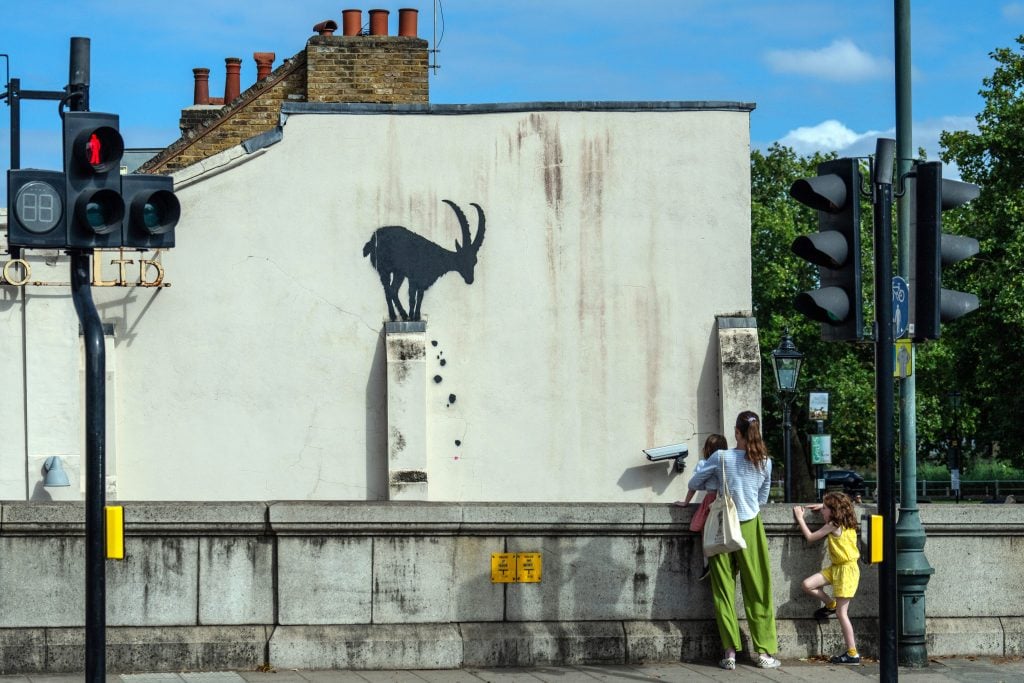
A woman and children view a mural depicting a goat by the street artist Bansky, on August 5, 2024 in the Richmond borough of London, England. Photo: Carl Court/Getty Images.
Reports from sources close to the artist have suggested his intention with the animal series was to “cheer people with a moment of unexpected amusement, as well as to gently underline the human capacity for creative play, rather than for destruction and negativity.”
Each addition to the artist’s city-wide menagerie drew fans, but also drama. The zoo mural is the fifth in the animal series to be either stolen, defaced, or relocated.
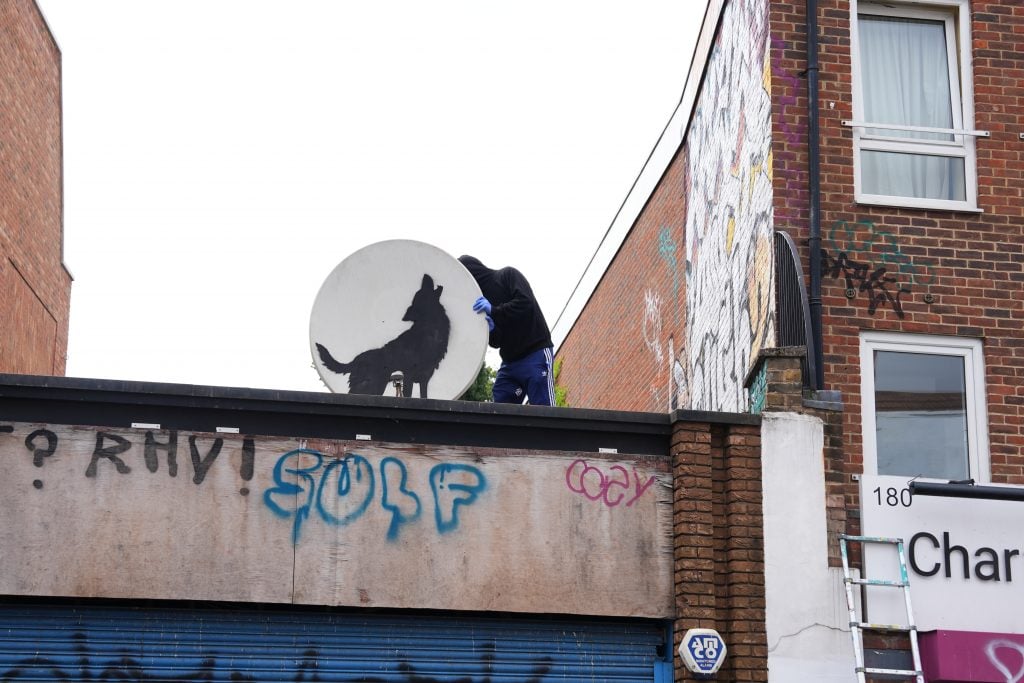
People remove a new artwork by Banksy, depicting a howling wolf painted on a satellite dish that was placed on a shop roof in Peckham, south London. Photo: Jordan Pettitt/PA Images via Getty Images.
A howling wolf painted on a satellite dish in the southeastern neighborhood of Peckham was taken by masked men mere hours after the artist confirmed it was his handiwork on his Instagram page. Within a couple days, an old billboard in the northwestern enclave of Cricklewood bearing a big cat mid-stretch appeared and was swiftly removed by a crew hired by the billboard’s owner, who told police the mural would be reassembled at an unnamed art gallery.
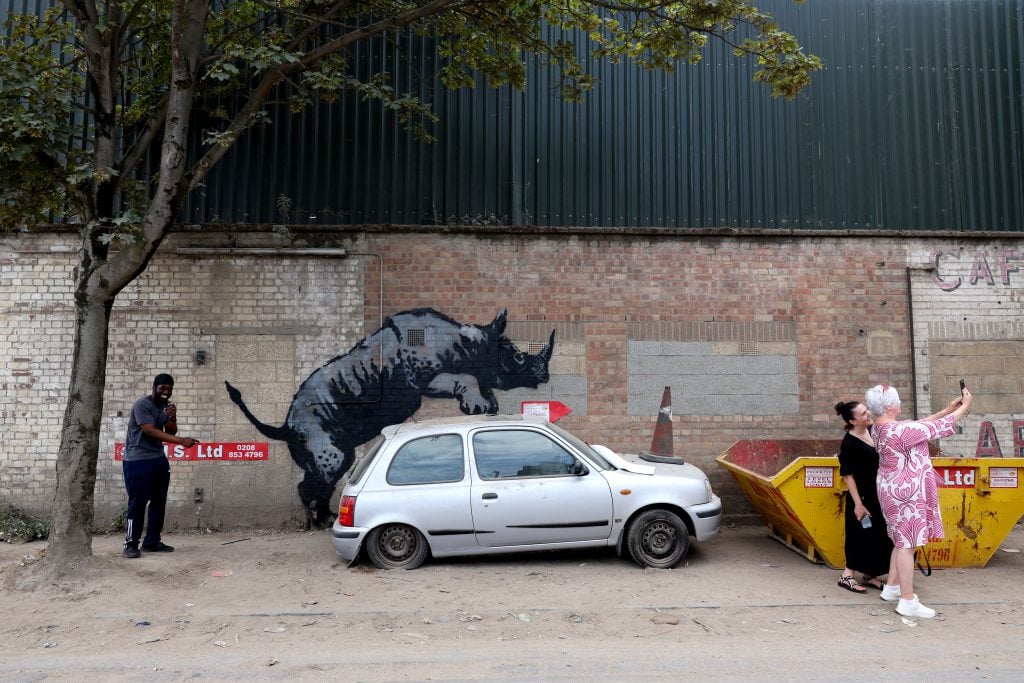
People gather around an artwork by street artist Banksy, the eighth to released in eight days, depicting a rhino mounting a car, on a wall in Charlton, London, on August 12, 2024. Photo: Adrian Dennis/ AFP via Getty Images.
Shortly thereafter, a rhinoceros painted on a Charlton-area brick wall that appeared to be mounting a broken-down car parked on the sidewalk was tagged with graffiti before the car was removed. Meanwhile, in central London, city officials removed a school of piranhas painted on the windows of a police box.
“We have moved the artwork to Guildhall Yard to ensure it is properly protected and open for the public to view safely,” a spokesman for the City of London Corporation said. “A permanent home for the piece will be decided in due course.”
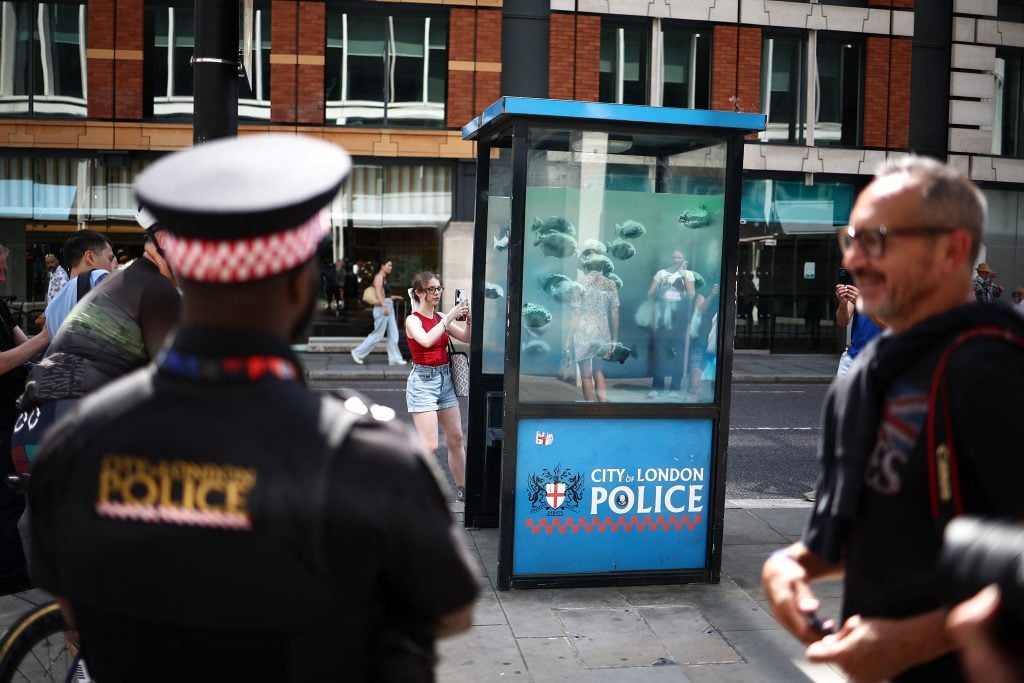
A City of London Police officer looks at an artwork by street artist Banksy, the seventh to released this week, depicting piranha fish swimming around a Police Box, in the City of London, on August 11, 2024. Photo: Henry Nicholls/ AFP via Getty Images.
The removal or destruction of Banksy’s works has been a frequent occurrence throughout the artist’s decades-long career, and is, in many ways, essential of his chosen medium of ephemeral public street art. According to Wikipedia, more than a dozen works have been removed from their original location and roughly triple that figure have been defaced, destroyed, or simply painted over.





